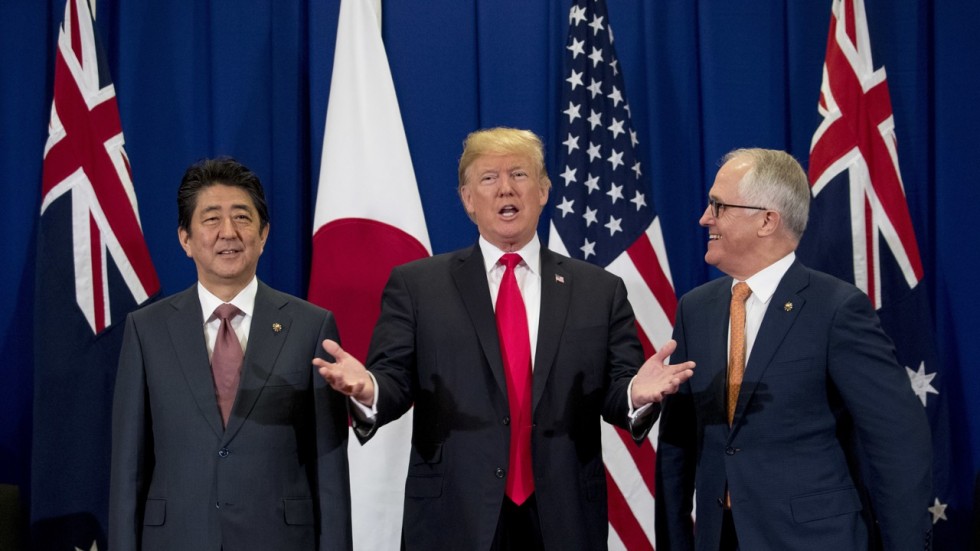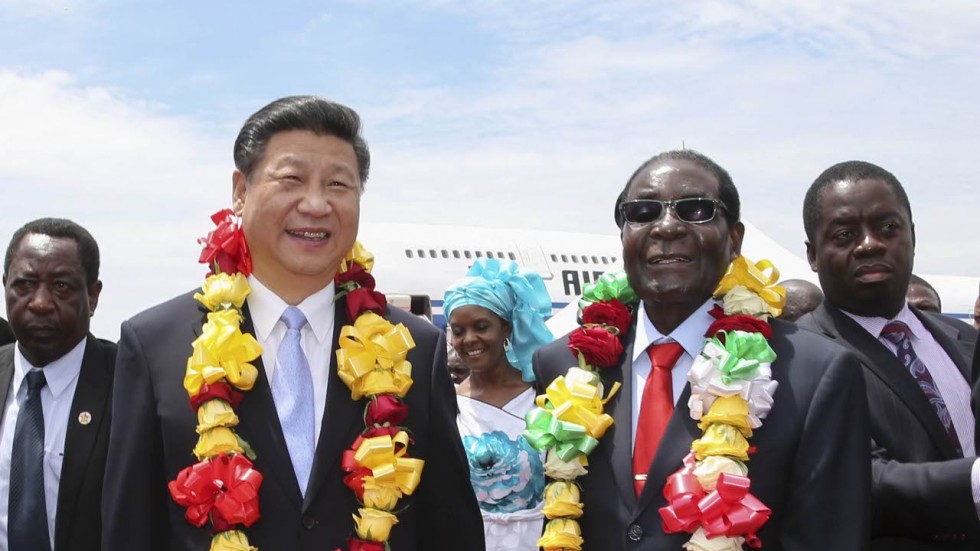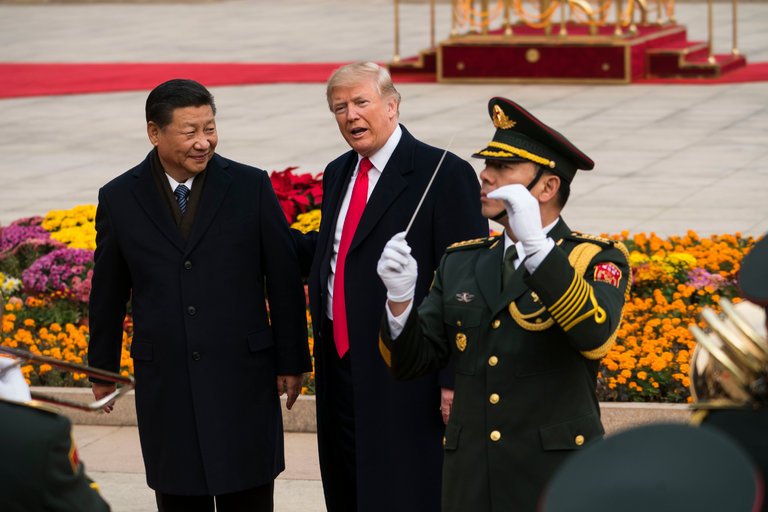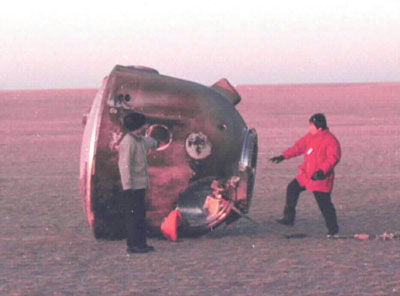
 The "Indo Pacific": A New American Strategy for Asia?
The "Indo Pacific": A New American Strategy for Asia?President Trump has faced persistent criticism for what many see as his administration's lack of an Asia policy, but during his trip to Asia, he hinted at what might become the seeds of a new American strategy: a focus on the "Indo Pacific" as opposed to the "Asia Pacific." In a break from the Obama administration, which preferred the latter term, Trump called for a "truly free and open Indo-Pacific region" in a speech at the ASEAN summit. The geographic redefinition highlights the importance of India as a strategic player and paves the way for increased strategic cooperation between India, Australia, Japan and the United States, as a China-US Focus contributor writes. Chinese officials have been quick to condemn the suggestion of a change in policy, which they see as an attempt to contain China. As Lu Zhaohui, China's ambassador to India, said, "China cannot be contained."
The "Indo Pacific" as a term is not new. Japanese Prime Minister Shinzo Abe has been pushing the term to promote links between the Pacific and the Indian Ocean since 2007, with mixed luck. In the U.S., it also has history. As Bloomberg noted, Pacific Command chief Harry Harris has used the term in speeches since at least 2014. In the run-up to President Trump's Asia tour, Secretary of State Rex Tillerson used the term 19 times in an October speech. In a review of Trump's trip, National Security Adviser H.R. McMaster said Trump had made calls to "Indo-Pacific leaders."
In the culmination of the administration's attempts to gain traction for the term, two days before the ASEAN summit, senior officials from Japan, Australia and India sat down with the United States in talks to revive the "Quad," or Quadrilateral Security Dialogue, a decade-old security partnership between India, Australia, Japan and the U.S., formulated on the sidelines of the 2007 ASEAN summit. As our contributor wrote, the partnership's new iteration may quickly evolve from a security partnership into a "global mechanism" of cooperation on "regional economic and employment issues," and "financing for infrastructure construction," in a challenge to China's Belt and Road.
Analysts and China-watchers are split over whether the new popularity of the phrase "Indo-Pacific" constitutes an actual rebalancing of US policy. Rory Medcalf, head of the National Security College at the Australian National University, argued, "This isn't just a Trump thing. It's being used by the Pentagon and State. I think it will outlive Trump," while James Curran of the Lowy Institute said the idea of the Indo-Pacific "Quad" was, "Little more than a diplomatic carcass hastily exhumed from the graveyard of Asian regional architecture." In a Singapore Times commentary, Ravi Velloor argues that China holds the final say as to whether or not the "Indo-Pacific" and Quad ideas have a longer shelf life than their predecessors. "Rather than get into a gang fight, therefore, what all Quad nations really expect of China is better behavior and respect for each member's sensitivities . . . It is in China's interest, therefore, to moderate its own behaviour in a manner that reduces the impetus for an "Asian Nato" to rise around it."
 China and Zimbabwe as "All Weather Friends"
China and Zimbabwe as "All Weather Friends"China's approach to international affairs has been based on "non-interference" since 1954, which for the most part has helped China avoid getting involved in other countries' internal rivalries, wars and politics.
This foundational principle made a meeting this week between Gen. Li Zuocheng, chief of the Joint Staff Department of China's Central Military Commission and Gen. Constantine Guveya Chiwenga, commander of the Zimbabwe Defense Forces in Beijing, all the more curious. This week, Zimbabwe's army seized power from the 94-year old President, Robert Mugabe, who had been ruling the country for nearly four decades. Gen. Chiwenga has been called "one of the architects of the low-key coup," and said that Zimbabwe and China are "all weather friends." Robert Mugabe also met with President Xi many times in the past. China has been pouring investment in the country as well, financing the Zimbabwe Defence College and a new parliament building.
So was China involved in the coup? Not according to Shen Xiaolei, an expert at the Chinese Academy of Social Sciences: "Chiwenga's visit was arranged long ago, so it's impossible he visited China over this matter," he said in The Guardian. An op-ed in The Global Times also said the incident wouldn't affect bilateral ties between the two countries. Perhaps most important to China is not who is in power, but stability and positive trade ties.
 Did Trump "Win" On UCLA and North Korea?
Did Trump "Win" On UCLA and North Korea?On Wednesday 16 November, Trump shot off a stream of tweets that illuminated his characteristically positive view both of his personal relationship with President Xi and his latest performance in Beijing: "China is sending an Envoy and Delegation to North Korea – A big move, we'll see what happens!" and "To the three UCLA Basketball players I say: You're welcome, go out and give a big Thank You to President Xi Jinping of China who made . . ." ". . . your release possible and, HAVE A GREAT LIFE! Be careful, there are many pitfalls on the long and winding road of life!"
Trump is not the only one who has attributed these developments to his recent visit and personal ties with Xi. Politico trumpeted: "China is sending envoy to North Korea following Trump visit," while Bloomberg proclaimed, "China Sending Envoy to North Korea After Trump Talks With Xi." Meanwhile, The New York Times reported on "How Trump Liberated UCLA 'Knuckleheads' From China," while The Huffington Post's headline read: "UCLA Players Thank Trump After China Frees Them In Shoplifting Case."
While Trump basks in his (ironically) media-fueled 'superhero moment,' other analysts have put these developments into context. Was the North Korea envoy a matter of causation or correlation? According to Tong Zhao, a fellow at the Carnegie-Tsinghua Center for Global Policy in Beijing, the visit has everything to do with the 19th Party Congress and nothing to do with Trump. "It has become a sort of routine for the Chinese Communist Party to send a special envoy to its fellow communist and socialist countries to brief them on China's Party Congress," he said. "China did so after the conclusion of the 2007 and 2012 party congresses, so this is not really unusual."
Trump's view that his visit to Beijing had led to a policy pivot was further undermined when on Thursday it was announced that China would stick by its "freeze-for freeze" proposal to de-escalate tensions on the Korean Peninsula. Just a day earlier, Trump had maintained that, "China now concurred with Washington that a 'freeze-for-freeze' agreement was unacceptable."
Putting the UCLA 'win' into context, several commentators have warned that this low-hanging-fruit victory could be causing Trump and the U.S. public to look away from bigger issues which remain largely unaddressed, such as trade, cybersecurity, or divergent views on the South China Sea. Vox remarked, tongue-in-cheek, that liberating three shoplifting undergraduates was the "biggest accomplishment" of Trump's visit.
What remains clear is that China has figured out how to make the U.S. President feel confident about China-U.S. relations: make him feel like a winner. To quote The New York Times, China may just be "selling Trump the Brooklyn Bridge."
 This Week in Chinese History
This Week in Chinese HistoryThis week in China, in 1999, The People's Republic of China launched its first Shenzhou spacecraft in an unmanned test flight on November 19. Modelled after a Russian spacecraft, the Shenzhou I had a three-module manned capsule design. The vehicle weighed just under 8,000 kg and could accommodate three astronauts. After the craft's first launch in November 1999, which marked a major milestone in the Shenzhou I's development, three more unmanned test missions were carried out before a manned test was launched in 2003. On that flight, Air Force Lt. Col. Yang Liwei became the first Chinese citizen to have flown in space aboard the Shenzhou 5.
Prepared by China-US Focus editorial teams in Hong Kong and New York, this weekly newsletter offers you snap shots of latest trends and developments emerging from China every week, while adding a dose of historical perspective.
- 2017-11-10 President Trump Revels in China’s State-Visit Red Carpet Treatment
- 2017-11-03 Will China Display Hard or Soft Power in the Era of Xi?
- 2017-10-27 All Eyes on Xi
- 2017-10-20 The 19th Party Congress Begins
- 2017-10-13 Tech Titans
- 2017-10-06 China’s Super Golden Week
- 2017-09-29 All Quiet on North Korea’s Western Front?
- 2017-09-22 Back Together and Better than Ever: Renewed Sino-Russian Relations
- 2017-09-15 China positions itself to dominate the industries of the future
- 2017-09-08 Did North Korea just test a hydrogen bomb?
- 2017-09-01 Are Forced Technology Transfers Forcing the U.S. and China to Rethink How They Do Business?
- 2017-08-25 Bannon Out: What now for the China-US relationship?
- 2017-08-18 Trump Launches “Investigation on Whether to Investigate” China’s IP Laws
- 2017-08-11 Threats of "Fire and Fury" on the Korean Peninsula
- 2017-08-04 Trump Administration Plans Trade Actions Against China
- 2017-07-28 Xi to Dominate the 19th CPC Congress
- 2017-07-21 A Steely Comprehensive Economic Dialogue
- 2017-07-14 South China Sea Arbitral Award after One Year
- 2017-07-07 Now is the Trump Honeymoon with China Over?
- 2017-06-30 China Passes New Intelligence Law
